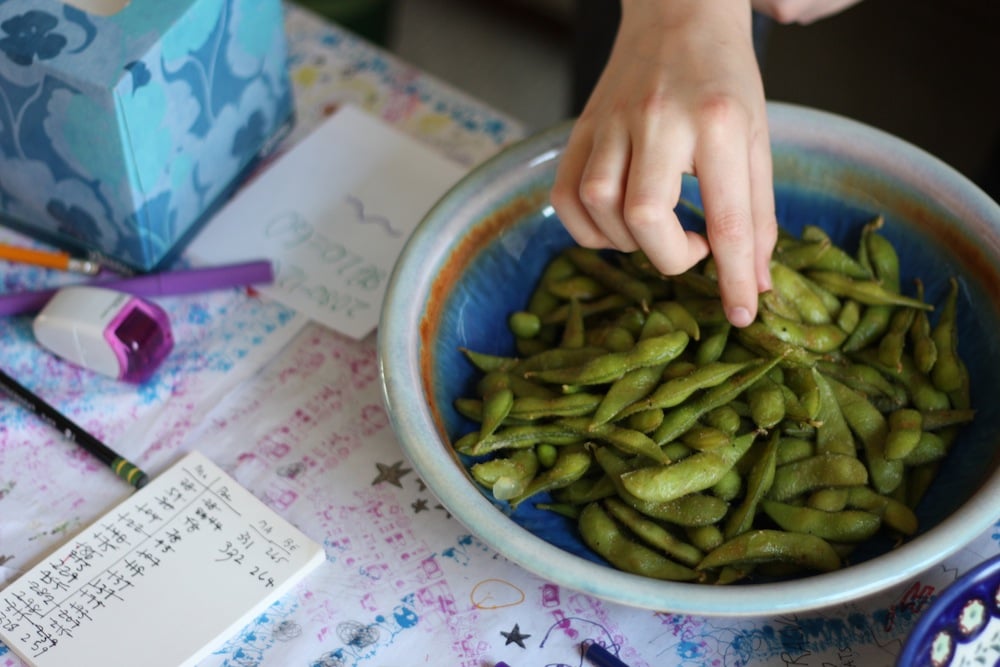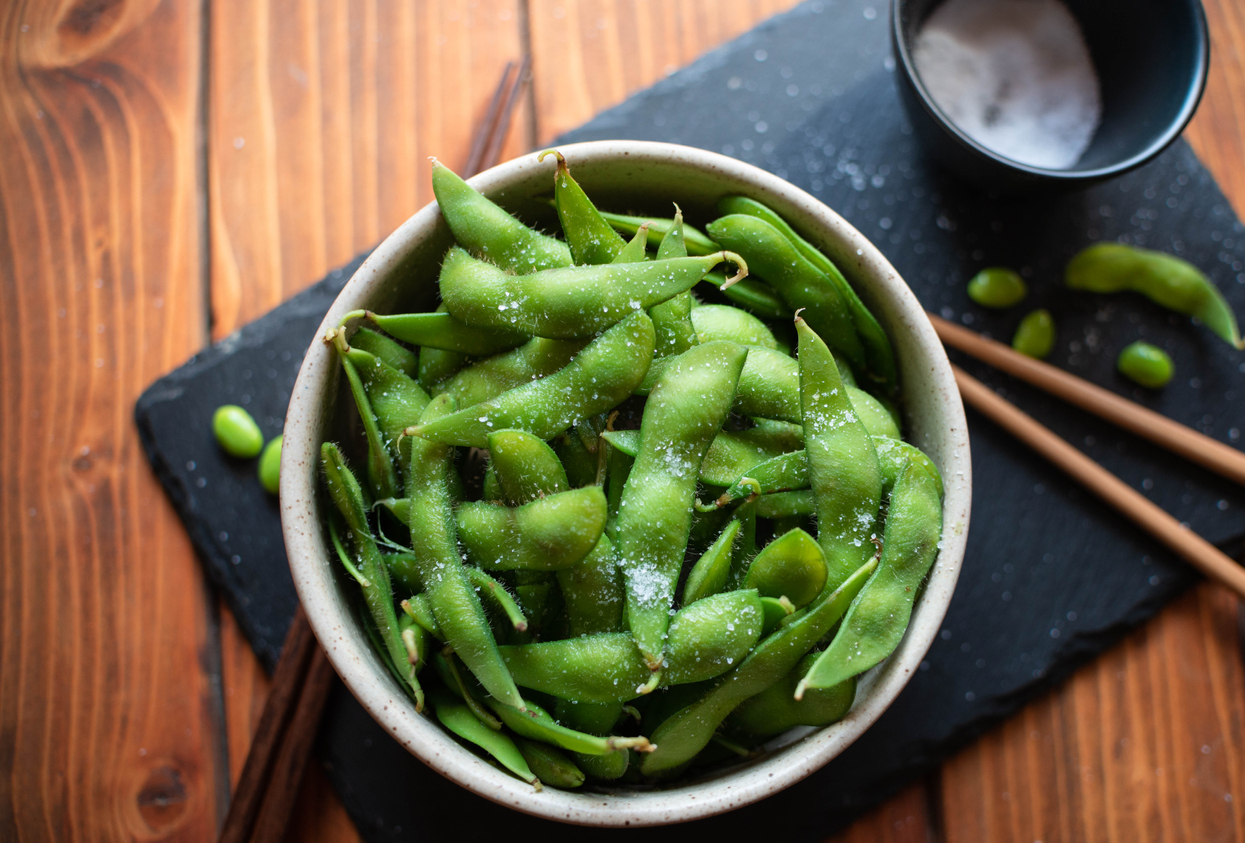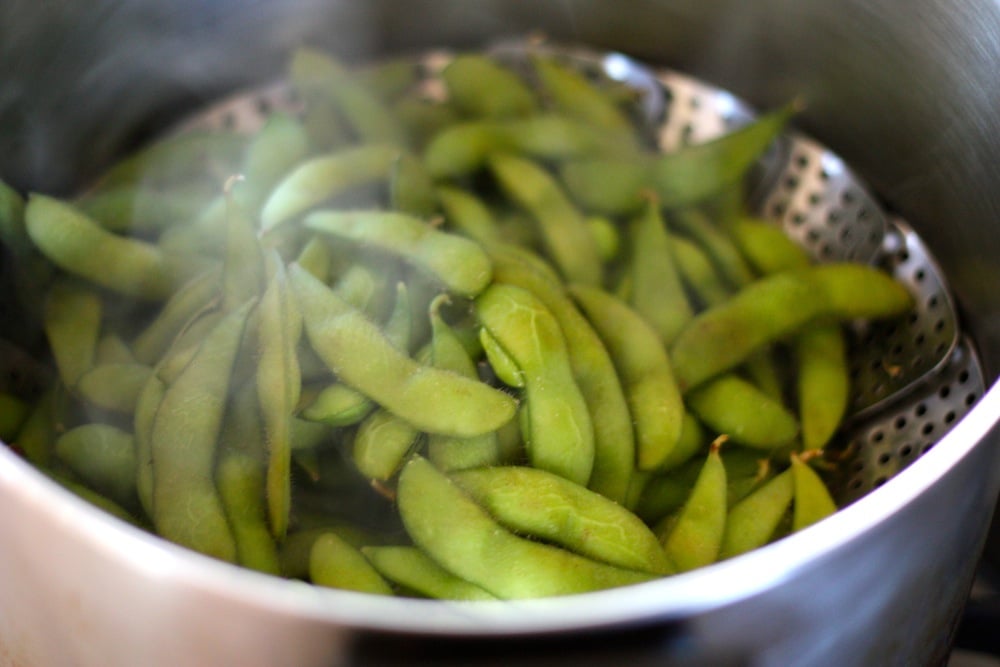How to Cook and Eat Frozen Edamame
By Catherine Newman

Edamame – the simple Japanese dish of soybeans served steamed in their pods – is an ideal way to get plant-based protein, fiber, and minerals like calcium.
This is in the class of foods that I used to call, when my own kids were little, “busytown vegetables.” The food group includes artichokes, corn on the cob, celery sticks with ranch dressing – anything that requires a little bit of (happy) effort on the part of the eater.
In case you're unfamiliar, edamame are green soybeans that you pop out of their pods and eat (you don’t consume the pods unless you’re my weird cat).
Edamame are so tasty and fun to eat, and they make a great substitute for chips or buttered popcorn or other less nutritious snack foods, since you can eat them while you’re watching a movie or playing a game.
Recipe Details: Basic Edamame
From Catherine Newman
 Active time: 10 minutes
Active time: 10 minutes
Total time: 10 minutes
Makes: 4 servings
Total carbohydrates: 7 grams per serving
Recipe Note
To keep this simple snack interesting, consider adding a squeeze of lemon or lime juice, a few shakes of sriracha or another hot sauce, a big grinding of black pepper, and/or a sprinkle of seasoning, such as celery salt or garlic powder.
Ingredients
-
1 (1-pound) freezer bag of edamame in their pods
-
Kosher salt, to taste
Instructions
-
Steam the edamame until they are tender. I do this in one of those UFO steamers, the kind that’s always weirdly missing one of its hinged segments, over an inch of boiling water, for about 10 minutes, even though the bag says “5.” (You can also cook them in a couple of inches of boiling water, in which case I would salt the water.)

-
Drain the edamame well, put them in a bowl, and add a lot of salt. Most of the salt is going to stay on the outside of the pod, and the idea is to get the pods salty enough that your salty fingers kind of season the beans as you eat them. At least that’s my idea. Serve hot, warm, or at room temperature.
Nutritional information per 4-ounce serving: 138 calories, 5 g total fat, 0 g saturated fat, 0 g trans fat, 0 mg cholesterol, 9 g total carbohydrates, 6 g dietary fiber, 3 g sugars, 0 g added sugars, 12 g protein.
Photo credits: Catherine Newman (top and bottom images); iStock (center).







